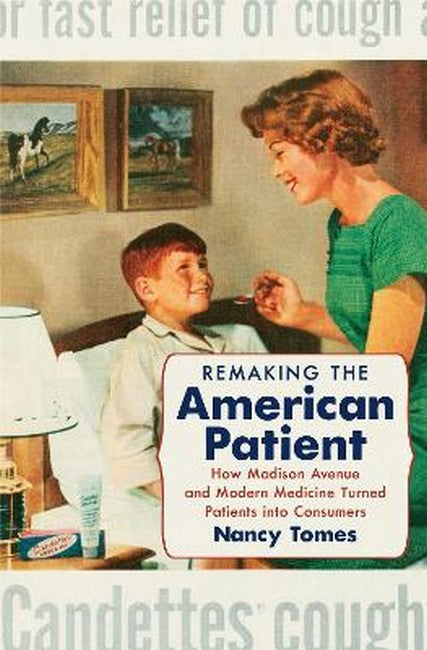Nancy Tomes is professor of history at Stony Brook University and author of The Gospel of Germs: Men, Women, and the Microbe in American Life.
Request Academic Copy
Please copy the ISBN for submitting review copy form
Description
A fluent and immensely readable chronology, minutely referenced, instructive and ruefully entertaining. . . . [The] last chapter is a particular tour de force, a virtuoso summary of our present circumstances as we find ourselves both far better off, healthwise, than we have ever been and yet somehow right back where we began"-New York Times "This fascinating book . . . will intrigue health care professionals and policymakers as well as interested lay readers."-Library Journal, starred review "A sweeping book that is thoughtfully researched and meticulously documented . . . [and] disproves several reigning myths about the current culture of medicine in the United States."-Health Affairs "Casts the history of American medicine in a new light and helps explains the roots of contemporary patients' and physicians' predicaments."-American Historical Review "Tomes successfully derives valuable insights into current concerns from her historical analysis of the fading distinction between medical professionalism and commerce."-CHOICE "An even-handed account, noting that patients have long maintained unrealistic expectations of medicine, fueled in turn by advertising puffery."-Bulletin of the History of Medicine "Tomes is the first to longitudinally examine patient consumerism-and the capacity of laypeople to stand back, examine, and critique medical care--from the 19th century to the present day."-Perspectives in Biology and Medicine "Strongly recommended for scholars of medical history, for use in graduate and advanced undergraduate classes, and for anyone interested in health care reform."-Canadian Journal of History "This is truly a comprehensive and detailed analysis of twentieth-century healthcare. . . . Remaking the American Patient is a wonderful book; having the opportunity to review it in the midst of some of the most vitriolic political debate about health care in modern memory was a distinct pleasure."-Charlotte Borst, Journal of the History of Medicine and Allied Sciences "All this is written in a vivid and engaging style, which makes a complex history easily available to lay readers and satisfying for specialists. Tomes moves with ease between pithy anecdotes, artifacts of popular culture, vignettes of earnest advocates or self-righteous doctors, and the high politics of health care. The result is a narrative with pace and direction."-Reviews in History

